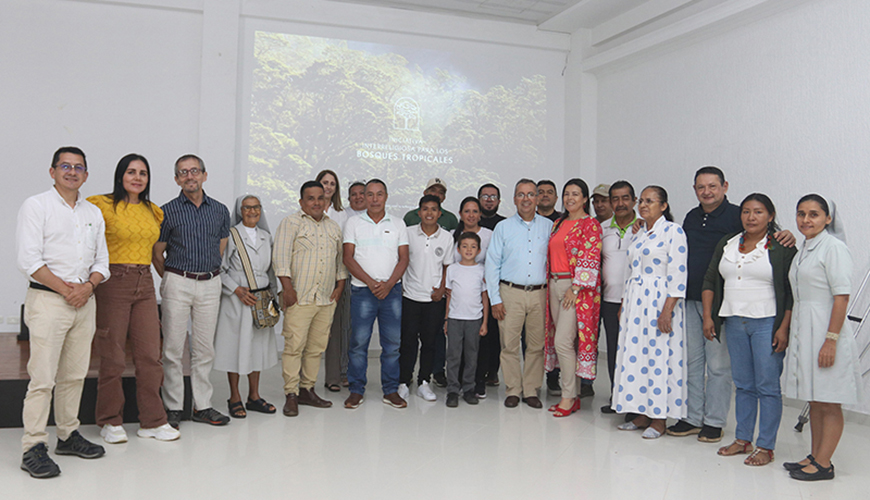Ecotheology, the impact of deforestation in Guaviare and the process of savannization suffered by the Amazon biome, nature-based solutions and payments for environmental services, were the central themes of the training process that the Interreligious Initiative for Tropical Forests carried out on June 6, at the Facredig auditorium in San José del Guaviare.
“We hope that these trainings are reflected in the actions of each one of us, that we internalize the need to raise awareness among people about the importance of protecting our Amazonian tropical forests, to advocate with governments to control deforestation. We must start in our homes and in our communities, the responsibility is everyone’s,” said Blanca Lucía Echeverry. The national coordinator of IRI-Colombia was in charge of welcoming the attendees to the educational day, aimed at religious, indigenous and community leaders, members of civil organizations, teachers and representatives of the local authorities that make up the local chapters of IRI-Colombia in San José del Guaviare, El Capricho, Charras Boquerón, El Retorno, La Libertad and El Unilla.
This new curriculum allows members of IRI’s local chapters to advance and deepen issues of vital importance to understanding the importance of Amazonian tropical forests and taking action to protect them.
“We have had the opportunity to analyze the dynamics of deforestation in the Amazon, deforestation and climate change. Now we will address various responses to climate change that allow us to contribute to mitigating the impact of this phenomenon,” explained the national advisor of IRI-Colombia, Carlos Augusto Lozano.
Pastor Edgar Castaño, a member of the Evangelical Confederation of Colombia (CEDECOL), for his part, gave a presentation on the place of God in nature and the relationship between nature and human beings, from the perspective of spirituality.
In turn, the scientist expert in ecology and sustainable development, Diego Fernando Campos, gave a lecture on nature-based solutions and payment for environmental services, and led a practical workshop in which the participants, gathered in groups, identified the environmental problems of their territories and possible nature-based solutions, in order to find possibilities of payments for environmental services that benefit the environment, biodiversity and population.


